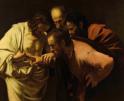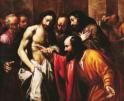
Faith
Students are worried their benefactors were racists in their time. ... Yet Margaret Sanger, founder of Planned Parenthood, is studied and celebrated as an icon.

Ryan
Isn't it amazing how many inconsistencies are filtered through modern minds? For example, how is it that many college students decry the racist, even capitalist, backgrounds of some of their campus benefactors, yet they give wide berth to others who held similar racist views in their time.
Students want dorm names changed at Harvard, or President Calhoun's name taken off buildings at Yale; Cecil Rhodes is no longer admired for providing scholarships to study abroad; an avalanche of complaints circulate at the University of Virginia where Jefferson left his favorite legacy. Students are worried their benefactors were racists in their time.
Yet Margaret Sanger, founder of Planned Parenthood, is studied and celebrated as an icon. Hillary Clinton calls Sanger one of her heroes. In her quest to make history for the sisterhood, Hillary Clinton likes to target doubters in the abortion debate as attacking "reproductive rights."
How is it that $528 million in government funding is given to Planned Parenthood each year? The line is that they provide "other health services." Isn't it a stretch to say that women go to Planned Parenthood for diabetes or anemia tests when there is universal healthcare?
Today's liberal icon Margaret Sanger has won, despite her unsavory views about which human beings should thrive and develop and which should not. A square is named for her in Manhattan at the intersection of Mott and Bleecker Streets. But long ago, back in the 1930s, Sanger wrote that eugenic sterilization is an urgent need. She urged targeted population control and fervently opposed the multiplication of, in her words, "bad stock."
She wrote in 1922 that we must encourage "the healthier and more normal sections of the world to shoulder the burdens of unthinking and indiscriminate fecundity of others, which brings with it, a dead weight of human waste." During her campaign to suppress one race in particular, she is quoted as saying "Eugenics is...the most adequate and thorough avenue for the solution of racial, political and social problems."
She said these things when Woodrow Wilson was alive. He is, of course, another target of complaints that he was racist. While she has many admirers, Margaret Sanger also has her detractors.
According to Dr. Ben Carson, in founding Planned Parenthood she was directly targeting African Americans by locating abortion clinics in their neighborhoods. He suggests the reason there are so many clinics in African American communities is to find a way to control the population. As the understated Dr. Carson puts it, she was "no fan of black families."
Sanger's legacy is alive in Planned Parenthood and its many supporters and defenders. National Public Radio, now in control of a good deal of America's public dialogue, has been offended by Carson's remarks. Does he think African American women are somehow less capable than other women of making a deeply personal decision about ending a pregnancy? Planned Parenthood's phrase to massage your guilt over such grisly decisions is to call abortions simply "preventive reproductive health care."
Some defenders try to acknowledge the past and move on. Susan Reverby, a health care historian and professor at Wellesley College, said Sanger was enamored of and supported some eugenicist's ideas. But, she demurred, Sanger's main argument was not eugenics, but that people should have the children they wanted.
Would the argument continue that fewer women in New York City want their babies? In the Big Apple, home to the largest black population of any U.S. urban area, today more African American babies are aborted than born. New York's Department of Health and Mental Hygiene reported that African American babies make up 42 percent of all abortions in a city where African Americans are just 25 percent of the population.
In Georgia, where there are twice as many whites as African Americans, more than 53 percent of abortions are of African American babies, and black women terminate their pregnancies at nearly 2.5 times the rate that white women do. The political left obsesses over racial disparities in bank loans, the quality of public schools and college admissions, but largely misses the discussion of abortion's racial disparity.
Planned Parenthood clinics performed 327,653 abortions in the year of latest records, 2013-14. They continue to do this with the hard-earned tax dollars from Catholics, Evangelicals, Mormons and other citizens who oppose abortion.
Throughout her life, Sanger regularly demonstrated that she was no friend of the Catholic Church. Still going strong in 1957, she criticized the Church in an interview with Mike Wallace. In her mind, Church leaders were "celibates who don't know love or marriage, or about rearing children."
If Margaret Sanger and her legacy Planned Parenthood have their way, there is little accountability for sexual behavior. If people only have the babies that are wanted, as Sanger urged, what happens? Should our children be taught that they should have only what they want? In the imagining of this liberal icon's perfect, utopian world, it is the poorest and weakest who pay the price.
- Kevin and Marilyn Ryan, editors of "Why I'm Still a Catholic," worship at St. Lawrence Church in Brookline, Mass.
Recent articles in the Faith & Family section
-
Wounds, not scarsJaymie Stuart Wolfe
-
A special collection in the liturgy libraryFather Robert M. O'Grady
-
Witness to a Transfiguration in KenyaMichele Miers
-
Understanding the ScripturesScott Hahn
-
'Cabrini' does extraordinary job of bringing saint to lifeBishop Nicholas DiMarzio


















